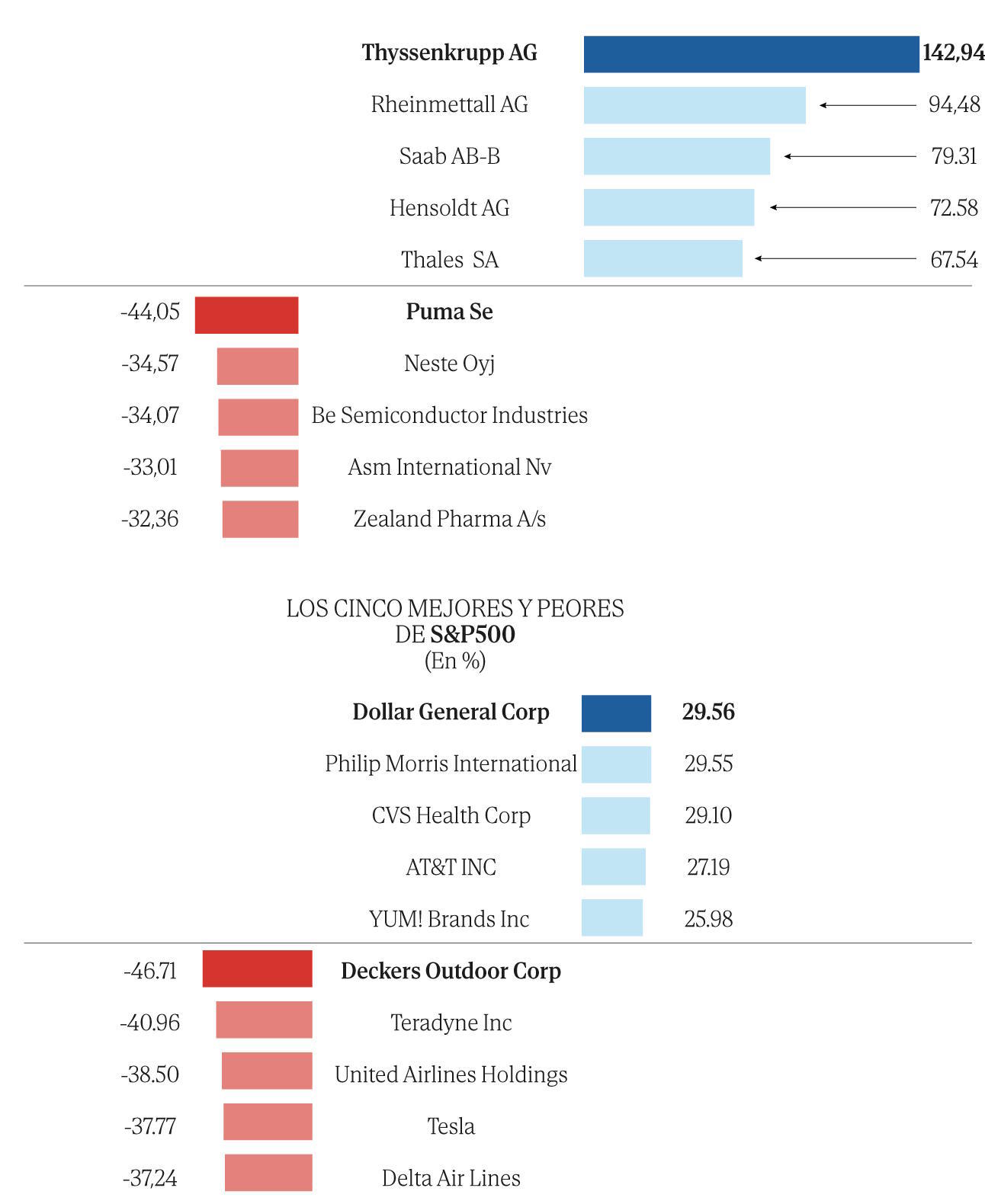Donald Trump returned to the White House on January 20, 2025. Since then, through threats and subsequent negotiations, he has increased market volatility and uncertainty, despite hopes during his campaign for an economic boom in the US. Several analysis firms are starting to question his management and even warn of a possible recession in the country. Along the way, some companies have felt the impact, while others have benefited from his arrival.
Following Trump's return, the evolution of the industrial index of American companies, the Dow Jones, is noteworthy, with a negative growth of 4.20% since the current president's inauguration. The most representative S&P 500 also brings bad news: during these months of the Trump Administration, its performance reflects a decrease in value of 6.53%, surpassing its Wall Street counterpart in losses. With so much stock market volatility, which companies stand out (for better or for worse) since the beginning of the new Trump era?
The 'MADE IN USA' companies
Within the S&P 500, and in descending order, the five most penalized companies are Deckers Outdoor Corporation (-46.71%), Teradyne (-40.96%), United Airlines Holdings (-38.50%), Tesla (-37.77%), and Delta Air Lines (-37.24%). There is a common denominator for almost all these companies: they belong to sectors such as tourism, automotive, or fashion. In other words, they are discretionary within regular consumption. And it is precisely this spending that is being most revised and adjusted for predictions in 2025, as the population naturally starts saving due to fear of a recession.
This movement aligns with the framework outlined in the latest forecasts by Goldman Sachs, which raised alarms this week by increasing the chances of a US economic recession in the coming year to 35%. Among their reasons for this diagnosis was a "sudden deterioration" in the confidence of families and businesses, as well as a "sharp" slowdown in real income growth. This indicates that families are likely to tighten their belts. Airlines have already echoed this fear, as in recent days they have once again cut their demand forecasts, leading to a stock market collapse.
On the other hand, there are companies that are weathering the crisis from various sectors: from low-cost distribution chains and fast food to health and tobacco companies. Within the S&P 500, standout performers in these months of 2025 include Dollar General Corporation (29.56%), Philip Morris International (29.55%), CVS Health (29.10%), AT&T (27.19%), and YUM! Brands (25.98%).
The beginning of 2025 has marked "a change in market trend," according to analysts at Allianz Global Investors. "With Donald Trump's return, many investors expected a similar upturn to the early days of his 2017 term. However, US markets have declined, while European stock markets have rebounded," expressed the global firm in one of its recent analyses, identifying the adjustment of European fiscal policy as one of the drivers of economic change, in contrast to the US situation where "tariffs and uncertainty about the economy and government policy are hindering growth."
Indeed, compared to the contraction of major indices in the US, European indices are showing better performance. Since Trump's inauguration, the Euro Stoxx 50, a reference in the Old Continent, has appreciated by 2.79%. Its performance in the green is supported by the financial sector, especially Santander, BNP Paribas, UniCredit, and BBVA. In contrast, luxury consumption sector firms, such as Kering (which manages brands like Gucci, Yves Saint Laurent, or Balenciaga), have been more penalized.
